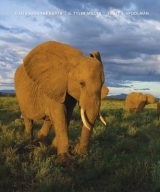
Cengage Advantage Books: Sustaining the Earth
Brooks/Cole (Verlag)
978-1-4390-4984-6 (ISBN)
- Titel erscheint in neuer Auflage
- Artikel merken
Sustainability is the integrating theme of this current and thought-provoking book. SUSTAINING THE EARTH provides the basic scientific tools for understanding and thinking critically about the environmental problems we face. About half the price of other environmental science texts, this 14-chapter, one-color core book offers an integrated approach that emphasizes how environmental and resource problems and solutions are related. The concept-centered approach transforms complex environmental topics and issues into key concepts that you will understand and remember. By framing the concepts with goals for more sustainable lifestyles and human communities, you will see how promising the future can be.
Scott Spoolman is a writer with more than 30 years of experience in educational publishing. He has worked with Tyler Miller since 2003 as a coauthor on editions of LIVING IN THE ENVIRONMENT, ENVIRONMENTAL SCIENCE, and SUSTAINING THE EARTH. With Norman Myers, he also coauthored ENVIRONMENTAL ISSUES AND SOLUTIONS: A MODULAR APPROACH. Spoolman holds a master's degree in science journalism from the University of Minnesota. He has authored numerous books and articles in the fields of environmental science, geology and natural history, politics, and business. He worked as an acquisitions editor on a series of college forestry textbooks. He has also worked as a consulting editor in the development of over 70 college and high school textbooks in fields of the natural and social sciences. In his free time, he enjoys exploring the forests and waters of his native Wisconsin along with his family— his wife, environmental educator Gail Martinelli, and his son Will and daughter Katie. G. Tyler Miller has written 62 textbooks for introductory courses in environmental science, basic ecology, energy, and environmental chemistry. Since 1975, Miller's books have been the most widely used textbooks for environmental science in the United States and throughout the world. They have been used by almost three million students and have been translated into eight languages. Miller has a professional background in chemistry, physics, and ecology. He has a PhD from the University of Virginia and has received two honorary doctoral degrees for his contributions to environmental education. He taught college for 20 years, developed one of the nation's first environmental studies programs, and developed an innovative interdisciplinary undergraduate science program before deciding to write environmental science textbooks full time in 1975. Currently, he is the president of Earth Education and Research, which is devoted to improving environmental education.
Introduction: Learning Skills.
PART I: HUMANS AND SUSTAINABILITY: AN OVERVIEW.
1. Environmental Problems, Their Causes, and Sustainability.
PART II: SCIENCE, ECOLOGICAL PRINCIPLES, AND SUSTAINABILITY.
2. Science, Matter, Energy, and Ecosystems.
3. Biodiversity and Evolution.
4. Community Ecology, Population Ecology, and the Human Population.
PART III: SUSTAINING BIODIVERSITY.
5. Sustaining Biodiversity: The Species Approach.
6. Sustaining Biodiversity: The Ecosystem Approach.
PART IV: SUSTAINING NATURAL RESOURCES.
7. Food, Soil, and Pest Management.
8. Water Resources and Water Pollution.
9. Nonrenewable Energy Resources.
10. Energy Efficiency and Renewable Energy.
PART V: SUSTAINING ENVIRONMENTAL QUALITY.
11. Environmental Hazards and Human Health.
12. Air Pollution, Climate Change, and Ozone Depletion.
13. Urbanization and Solid and Hazardous Waste.
PART VI: SUSTAINING HUMAN SOCIETIES.
14. Economics, Politics, Worldviews, and the Environment.
Appendix: Units of Measurement.
| Erscheint lt. Verlag | 1.1.2011 |
|---|---|
| Verlagsort | CA |
| Sprache | englisch |
| Maße | 231 x 278 mm |
| Gewicht | 830 g |
| Themenwelt | Naturwissenschaften ► Biologie ► Ökologie / Naturschutz |
| ISBN-10 | 1-4390-4984-X / 143904984X |
| ISBN-13 | 978-1-4390-4984-6 / 9781439049846 |
| Zustand | Neuware |
| Haben Sie eine Frage zum Produkt? |
aus dem Bereich



